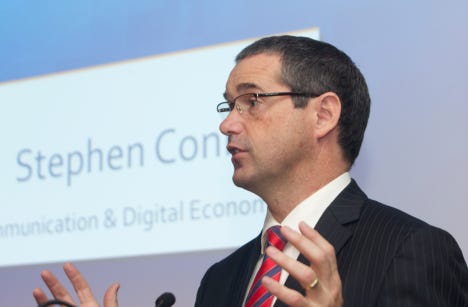Welcome to a Tuesday update from Unmade. Today: The ACCC says it wants regime change in the management of the digital platforms; the eSafety Commissioner wants a rethink on the exemption of YouTube from the under-16s social media ban. Yet Google always seems to get the benefit of the doubt. When does it stop?
This morning’s full post is for Unmade’s paying members. Everyone else will hit a paywall. Below the paywall, you’ll find your voucher code for a complimentary ticket to REmade - Retail Media Unmade which takes place on September 23.
Sign up for an annual paid membership of Unmade before June 30 and you’ll receive a huge additional benefit - a complimentary membership of Mumbrella Pro, usually priced at $790. It’s our best ever end of financial year offer.
Along with all of our paywalled content, your annual Unmade membership gets you tickets to September’s REmade conference on retail media; to October’s Unlock conference on marketing in the nighttime economy; and to Unmade’s Compass end-of-year roadshow.
And Mumbrella Pro contains an extensive archive of presentations from Mumbrella’s conferences, including last month’s Mumbrella 360, along with the industry’s most detailed database of brand and agency rosters.
Act before the end of the financial year for Unmade + Mumbrella Pro. Upgrade today.
Google gets away with it
I can still remember the first time I thought that Google deserved the benefit of the doubt.
It was May 2010.
Stephen Conroy, the Labor communications minister, was railing against Google’s Streetview cars. It had recently emerged that they had been equipped with antennas to sniff out every unsecured wifi network they passed, and were downloading data on which websites they had been visiting.
It was, Google assured the world, an error that had somehow been happening by mistake. “I do not think it was ‘somehow’; I think they set out to collect it,” Conroy told Senate Estimates. “Google takes the view that they can do anything they want.”
At the time the cool kids of digital media (and I, briefly, was one) had little time for Conroy, who had what seemed a weird obsession with creating a filter to censor the Australian internet. Whatever Conroy thought, it seemed the interests of digital-first Australians were probably the opposite.
Rhetorically, Conroy asked the hearing: “What would you prefer?’ A corporate giant who is answerable to no one and motivated solely by profit making the rules on the internet, or a democratically elected government with all the checks and balances in place?”
Mumbrella’s Dr Mumbo (or, rather, I) posted a poll. It had a solid 398 responses:
Who do you want to look after the internet?
A corporate giant who is answerable to no one and motivated solely by profit making the rules on the internet? 93%
Stephen Conroy? 7%
Way to be on the wrong side of history.



